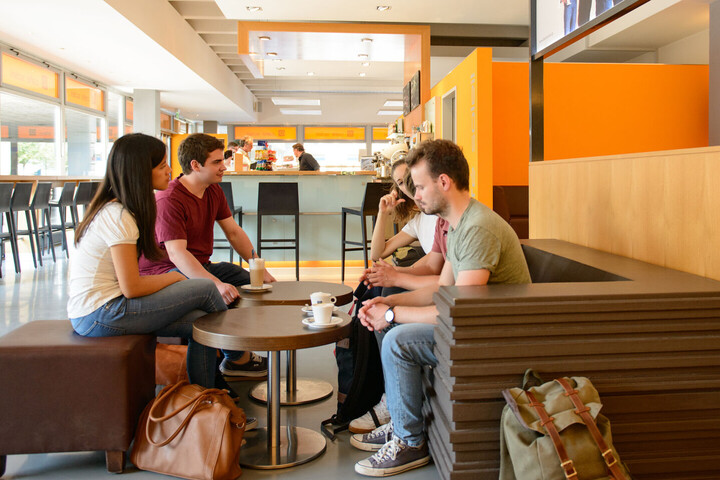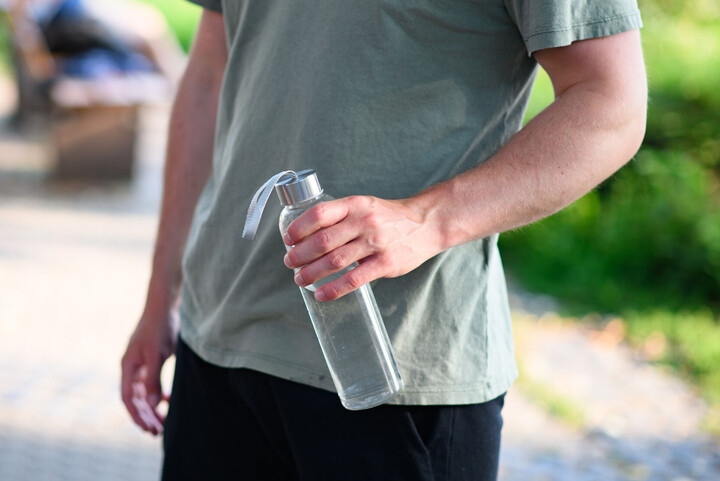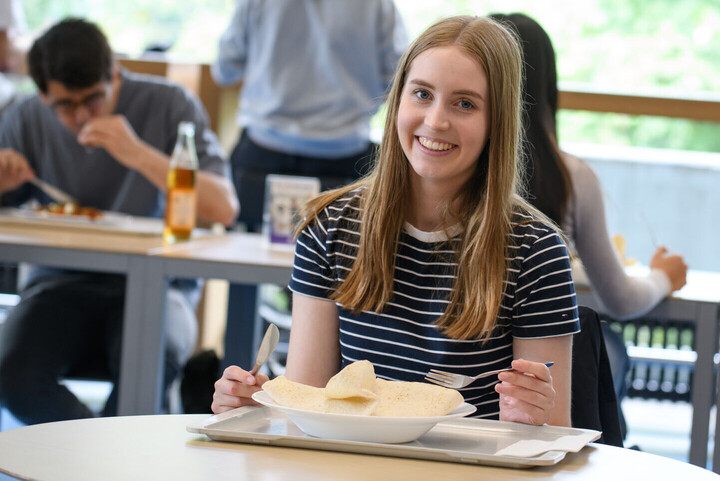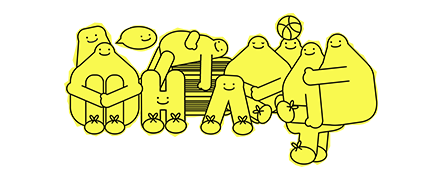Healthy Diet
A quick sandwich from the kiosk between lectures, schnitzel and fries at the Mensa for lunch, soda instead of water, and a frozen pizza with chocolate pudding for dinner. This is the stereotypical student diet. But in reality, students do not eat that badly.
Students have long known how important a balanced diet is for learning and concentration. Our personal well-being also benefits from a healthy diet. This is why many students make conscious choices about what they eat. Many choose to eat less animal products, to be vegetarian, vegan, and/
According to the German Nutrition Society (DGE), a healthy diet consists of plenty of fruit and vegetables, some fish, valuable carbohydrates (such as whole grain products and potatoes) and meat only rarely, if at all.
This is easier said than done, especially during exam periods. Not everyone has the time and money to cook a (fresh) meal. Fortunately, the cafeterias on campus offer a wide range of healthy meals at affordable prices.
Plus: you do not have to change your eating habits from one day to another. In order to change habits in the long term, it is often easier to go step by step.
The German Nutrition Society recommends:
- Drink around 1.5 liters of water or unsweetened tea every day.
- Make sure you eat plenty of fruit and vegetables – ideally five portions a day.
- Eat legumes and nuts regularly.
- Whole grains are the better choice – for example, in bread, pasta, rice, and flour.
- Use vegetable oils whenever possible.
- Include milk and dairy products every day.
- Eat fish once or twice a week.
- Eat little meat and sausage.
- Avoid sweet, salty, and fatty foods.
- Take your time when eating – enjoy your food.
- In addition, stay active on a regular basis.
Further information on the recommendations of the German Nutrition Society



